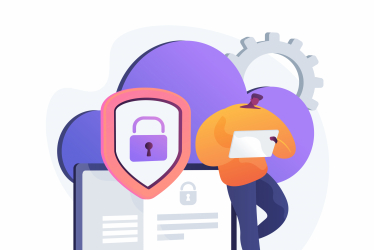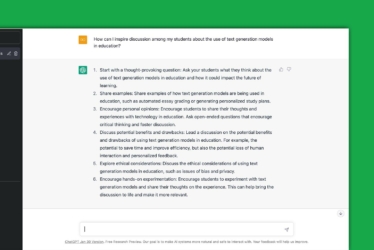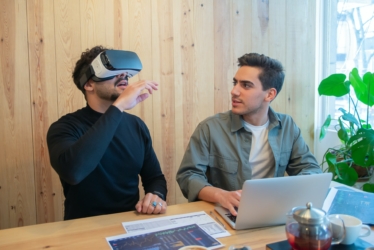Insights
Top Tips for Remote Working: How to Detox your Relationship with Tech
Our relationship with digital technology feels natural to us, yet in reality it’s a recent addition to human life. In just a few decades it has penetrated many aspects of our daily lives. While we are still figuring out the right balance, the Covid-19 pandemic has accelerated our use of and dependence on tech. This dependence risks not only achieving the right balance, but also negatively impacting our wellbeing. As with every relationship, we need to ask ourselves how dependent are we on digital tech, and who is in control?
This practical guide looks at what is digital wellness and how technology affects our wellbeing. Below you will find our top 3 tips on detoxing your relationship with tech. We advise on how to explore your relationship with tech, how to stay focused, and how to reduce ‘technostress’.
Three tips to detoxify how you use technology
1. Explore your relationship with digital technology
Why is this important? Well, according to Bandura’s self-regulation theory, self-monitoring behaviour can lead to awareness about one’s use of digital technology, which can ultimately result in a positive self-reaction and a higher sense of well-being.
To monitor your digital behaviour, ask yourself these questions:
How much does digital technology influence your life and are you aware of it?
What tools and devices do you use, and how often do you use them? How do you feel while and after you interact with them, and what are the most toxic ones for you?
How often do digital interruptions distract you?
Do you feel tired after too much screen time? Are there (digital) tools that make you feel re-energised?
How does your daily use of technology affect your close relationships towards others?

Be aware of the opportunities and the challenges that digital technology can create. Tech has some great benefits: instant access to information, opportunities to express yourself and socialise with people worldwide, as well as endless possibilities for education.
On the other hand, social media can also exert a negative influence on identity development. It can impact self-concept clarity, self-esteem, and self-awareness. In line with social comparison theory, social media can affect self-esteem. If you believe that influencers and your online connections are better, more attractive, or more successful than you are, it may lower how you regard yourself. If it’s the other way around, your self-esteem may increase (more information).
How to choose what you follow online
To make smarter choices of who to follow online and what to read, be aware of your own emotions. How does this person on social media or an online article make you feel? Does it support your interests or does it make you feel negatively? Based on how you feel and how it affects your self-esteem, change who you follow and what you read.
2. Stay focused
Notifications are deliberately designed to grab your attention, or, in other words, to change what you’re doing. Emails, app alerts, workcalls, and calendar events can easily distract anyone.
It takes around 20 minutes before your brain can resume it’s focus after an interruption according to Larry Rosen (psychology professor at California State University and co-author of The Distracted Mind). Moreover, interruptions and distractions can have negative effects on worker wellbeing. Geraldine Markel, author of Defeating the 8 Demons of Distraction, writes that people who are constantly interrupted or distracted during their work, lose focus, feel frustrated, have lower morale, and report higher levels of stress and fatigue.
Follow these steps to resist unnecessary distractions:
- Apply self-monitoring behaviour by starting a digital detox.
Digital detoxing means disconnecting from online or digital media for a certain amount of time, as well as strategies to reduce your use of digital media or digital tools. Temporary withdrawals from digital devices help us understand how tech connects us to the social world and also emphasises the importance of the offline world. - Track your screen time and block attention consuming apps.
Most devices allow you to measure the amount of time you’re looking at the screen, and implement time limits on using certain apps.
For iPhones: Turn on Screentime in your settings to access these facilities.
For Android: Android smartphones also provide the possibility to set a “night-time” for certain apps that you choose.
Third-party apps: Digital detox apps include Moment (iOS), QualityTime (Android), Flipd (iOS & Android), or Forest (iOS & Android). According to a study, digital detox apps seem to prevent the harmful effects of social networking sites. Young adults who used social networking sites but did not use digital detox apps, showed more problematic smartphone use, which was not good for their wellbeing. Whereas young adults who did use digital detox apps, no such relationship was found. In short, self-monitoring behavior may prevent developing problematic smartphone usage patterns. - Turn off your notifications, sounds and/or alerts.
- In work environments, create a culture in which people don’t expect instant responses to emails and calls. People should have the opportunity to schedule time to focus without interruption.
- Schedule periods of communication and periods of focused work in your calendar. During those periods of focused work, don’t check your email or other communication channels.
- Make use of the Pomodoro Technique. This technique breaks down your work into intervals separated by short breaks.
- Take regular and short breaks.
It can be difficult to achieve some of these goals and that’s okay as well. Don’t add further stress by aiming for unachievable goals.
3. Battle ‘Zoom- fatigue’
The pandemic has placed our bodies and minds behind screens for more time than ever. This makes us more prone to the consequences of ‘technostress’, a syndrome that was coined by Psychologist Craig Brod in his 1984 book The human cost of the computer revolution.
Digital technology has rapidly penetrated our lives since that time. Nowadays, people must cope with information overload, and multiple device management leading to serious health issues for the 21st Century person.
Before the Covid-19 pandemic, technostress was more of a risk for certain professions (e.g. IT). But emerging now is an alarming shift toward an entire workforce being at risk of technostress while working from home. In our University context, which is undergoing digital transformation, teachers could certainly be added as a risk group.
Video meetings are a prominent source of technostress. After a long work day filled with video calls, it’s common to feel mental fatigue, muscle pain, and headaches. In popular jargon this phenomenon is referred to as Zoom-fatigue.
In a video call, our evolutionary communication system is challenged. We are unconsciously preoccupied with scanning and interpreting communication cues of the people we are talking with, an essential part of our (social) survival.
While in an offline encounter most people can interpret communication signals naturally, the digital environment makes interpreting non-verbal body language more difficult. It gets in the way of absorbing the purposeful information of the meeting.
How to prevent cognitive overload in video calls
Detox your video-calling agenda by arranging less video-calls on a work day, and never schedule calls back-to-back.
While in a video conference: Turn off your own camera, to avoid self-reflective thinking about how you come across, and turn off the cameras of others to focus on what's been said. Not all your calls need to be video calls. Make use of normal phone calls, as these can even be done with the added benefit of taking the call while walking.
Try to avoid doing other things while in a meeting; multitasking only adds to more cognitive overload.
Find remedies for relaxation of your cognitive system in holistic techniques (like yoga or mindfulness) or sport techniques (do a walking meeting).
Organise a digital siesta with your colleagues: A scheduled time window in which everyone takes a rest from their screen time and digital meetings are not allowed.
Track and acknowledge your progress. This can help you stay on track and prevent you from falling back to old (consumer) habits.

Is your relationship and behaviour with digital technology working for you at the moment? Are you in balance with it or are you feeling exhausted after a remote work day? It could be helpful to assess which role digital technology plays as a trigger for your exhaustion and unbalance. Digital technology offers a lot of benefits to our working environment. But we have to make sure to find the right balance in using it, without getting stressed out.
More information
- Join the CFI interactive workshop from our colleagues on Digital Wellness at ImpactFest
- Follow the MOOC Demystifying- Mindfulness
- Join the healthy university week at Leiden University
- Read the Healthy university dossier at home
- Relevant articles from top tips dossier CFI
- Top Tips for Remote Working
- Top Tips for Remote Learning: Managing challenges and achieving success in e-learning
Get in touch with the authors

Leontine van Melle
Project Design & Delivery
l.r.van.melle@sea.leidenuniv.nl
Emma Wiersma
Learning Experience Designer
e.m.wiersma@sea.leidenuniv.nl




